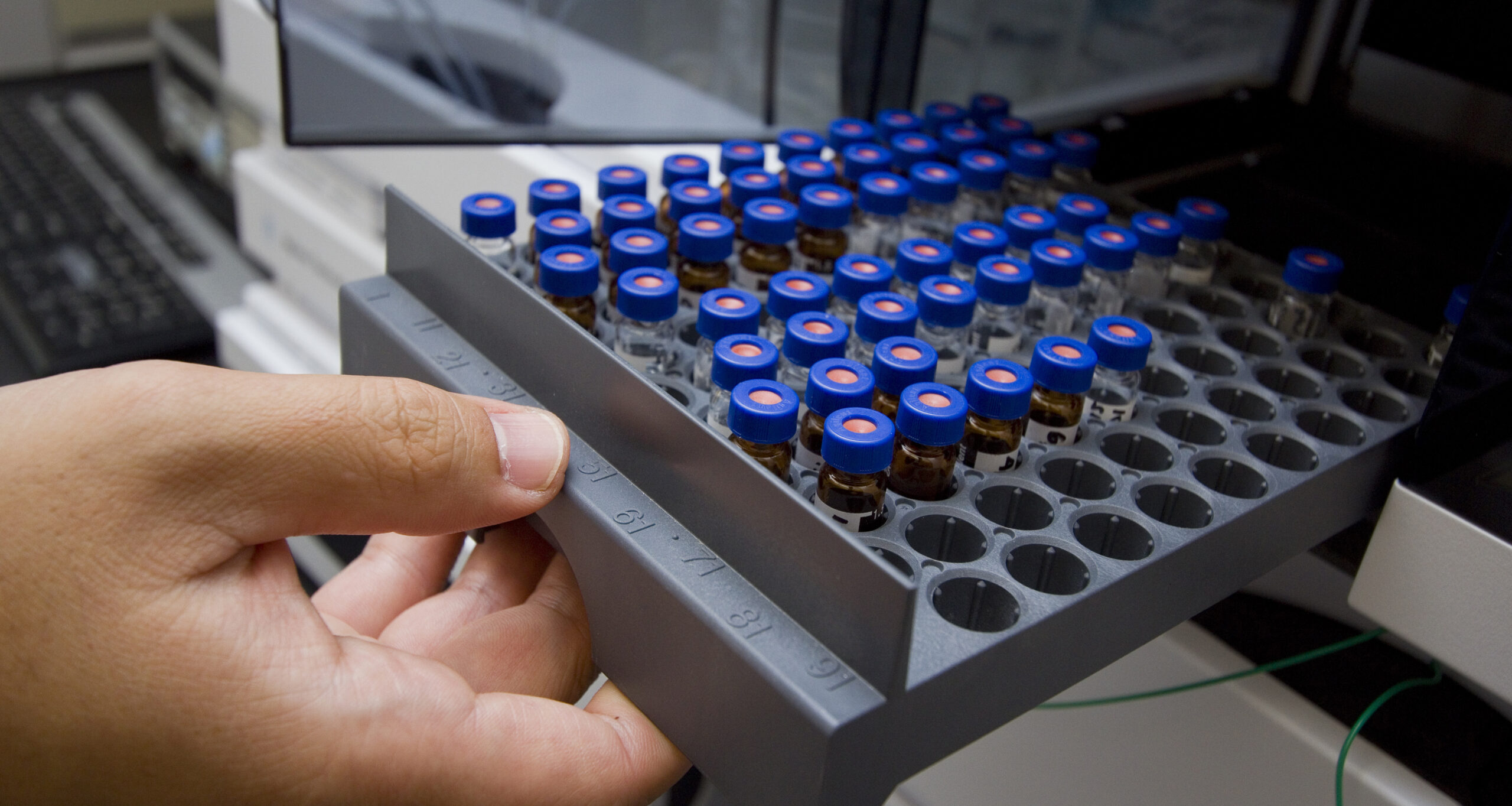Repost from North Carolina Research Campus
Many people may not link type 1 diabetes (T1D) and Crohn’s Disease (CD). Qibin Zhang, PhD, co-director of the UNC Greensboro Center for Translational Biomedical Research at the NC Research Campus (NCRC) in Kannapolis, NC, believes the two autoimmune diseases have more in common than many people understand, beginning with proteins.
Zhang researches T1D, a disorder that causes the body to attack the insulin-producing beta cells in the pancreas. One of the challenges that his team faces is to differentiate whether the potential blood protein markers identified in T1D samples are common to other autoimmune diseases.
With this in mind, Zhang applied his knowledge of protein biomarkers and TID to CD. CD is a chronic inflammatory bowel disease (IBD) that affects approximately 1.4 million Americans causing symptoms that include cramping, diarrhea, malnutrition and weight loss. Severe cases often require surgery and can lead to loss of bowel function. Even though medications are available to treat the disease, invasive medical procedures are the only methods available to doctors to diagnosis and determine prognosis.
New findings reported in “Serum Proteome Profiles in Stricturing Crohn’s Disease: A Pilot Study” published in Inflammatory Bowel Diseases, the official journal of the Crohn’s & Colitits Foundation of America, Inc. provides evidence that physicians may one day have protein-based biomarkers available to quickly assess the medical status of their CD patients and determine treatment.
Zhang and the study’s other co-authors began with previous research that indicated different types of CD may have different protein profiles. They analyzed 7,668 peptides and quantified 897 proteins resulting in the detection of specific proteins and peptides that distinguished between three types of IBD: ulcerative colitis and stricturing and non-stricturing CD.
“This is just a pilot study with a small sample size, nine people in each group,” Zhang commented. “We believe we showed the feasibility of our approach to identify novel protein biomarkers. It is a first step to help us expand the study to include more patients. It is very promising.”
Study authors include physicians Bruce Sands, MD, principal investigator of the Ocean State Crohn’s and Colitis Area Registry (OSCCAR), and Neal LeLeiko, MD, PhD, director of pediatric gastroenterology at Hasbro Children’s Hospital at Rhode Island Hospital.
“They are excellent clinicians, and they see the clinical demand for these types of biomarkers every day,” Zhang said. “Doctors and patients need better ways to know if Crohn’s disease is going to progress so they can do more to manage the symptoms and prevent severe complications.”
The identification of these protein biomarkers also supports Zhang’s T1D research that is conducted in partnership with the Diabetes Autoimmunity Study in the Young (DAISY) at the Barbara Davis Center for Diabetes at the University of Colorado School of Medicine.
“This is why we work with these other autoimmune diseases,” he said. “We have to tease out the biomarkers that are specific to each disease. In the end, the markers identified for T1D and other autoimmune disorders will be unique to those diseases only, and only the disease specific biomarkers are valuable in clinical settings.”
Learn more about the UNC Greensboro Center for Translational Biomedical Research.



